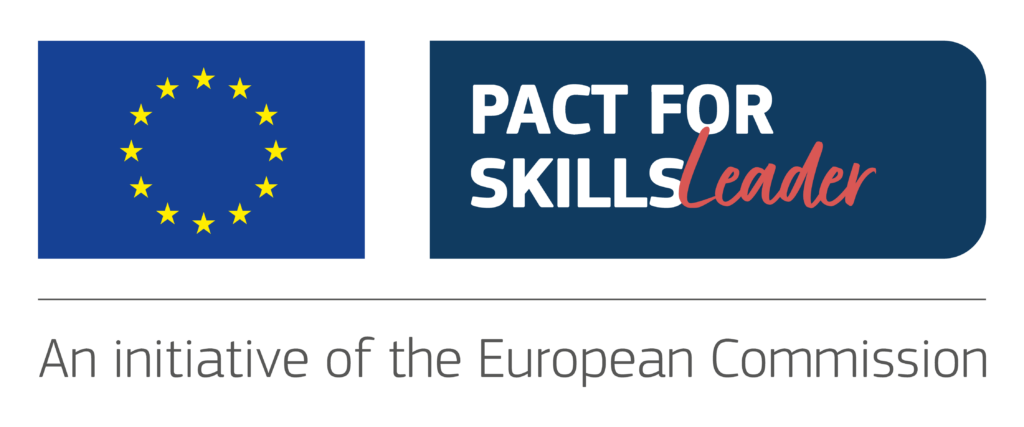Certificate in Adult Education and Training: Modern Approaches for Lifelong Learning
Certificate in Adult Education and Training: Modern Approaches for Lifelong Learning

Certificate in Adult Education and Training: Modern Approaches for Lifelong Learning
prevention
In a fast-evolving world, adult education plays a crucial role in driving personal, professional, and societal growth. This 7-day course provides educators, trainers, and facilitators with cutting-edge strategies to design and deliver impactful, learner-centered adult education. Focusing on the unique challenges of adult learners, this course equips participants with the skills to foster critical thinking, engage diverse learners, and promote lifelong learning in various educational contexts.
Upon successful completion, participants will receive a Level 7 EQC Certificate in Adult Education and Training, along with a Europass Certificate Supplement, and 10 transferable ECVET points, enhancing their professional qualifications and expertise.
Course Highlights:
– Level 7 EQC Certification: Attendees will receive a prestigious Level 7 EQC Certificate in Adult Education and Training, Europass Certificate Supplement, and 10 transferable ECVET points, enhancing their professional qualifications.
– Contemporary Adult Learning Theories: Dive into the latest theories and methodologies to create dynamic, learner-centered educational experiences.
– Practical Training Approaches: Learn how to design and implement training programs that are interactive, engaging, and tailored to the needs of adult learners.
– Promoting Lifelong Learning: Understand how to inspire adults to pursue ongoing education for personal and professional development.
– European Collaboration & Networking: Engage with educators and trainers from across Europe, exchanging best practices and building an international network of professionals.
Why This Certification Matters:
The Certificate in Adult Education and Training prepares educators to meet the demands of today’s diverse learning environments, helping them develop the tools to engage adult learners effectively. Adult education is key to unlocking new opportunities, building critical skills, and fostering adaptability in an ever-changing world. This course empowers educators to lead impactful programs that promote lifelong learning and social inclusion.
Course Objectives:
By the end of this course, participants will:
- Understand and apply key adult learning theories, such as experiential and transformative learning, to diverse educational settings.
- Design learner-centered programs that motivate and engage adult learners through interactive and reflective teaching methods.
- Master strategies to support adult learners in overcoming barriers, encouraging active participation and continuous learning.
- Gain expertise in using ICT tools and digital platforms to enhance adult education.
- Promote lifelong learning by creating educational pathways that encourage personal and professional growth.
- Learn how to foster inclusion by addressing the needs of adult learners from diverse backgrounds, including disadvantaged communities.
- Increase their capacity to deliver high-quality, relevant education and training for adult learners, while expanding their international professional network.
- Strengthen their sense of European identity and citizenship by collaborating with peers from across Europe.
Course Content:
This comprehensive course covers the core aspects of adult education and training, ensuring participants leave with practical skills and actionable strategies:
- Understanding Adult Learners: Explore the unique characteristics, motivations, and challenges faced by adult learners, and how to tailor programs to meet their needs.
- Adult Learning Theories: Gain an in-depth understanding of key theories, including andragogy, transformative learning, and experiential learning, and their application in adult education.
- Designing Engaging Programs: Learn how to create interactive, learner-centered training that fosters critical thinking, collaboration, and active learning.
- Lifelong Learning Strategies: Discover methods to inspire and motivate adult learners to pursue further education and professional development.
- Incorporating Technology: Explore the role of ICT tools and digital platforms in enhancing learning experiences for adult learners.
- Teaching in Diverse Contexts: Develop strategies to address the specific challenges of teaching adults in different contexts, such as vocational training, community education, and professional development.
- Participants will engage in hands-on activities, group discussions, and practical exercises to apply what they’ve learned directly to their teaching or training environments.
Methodology:
The course is built on active learning and collaborative methods, combining theoretical foundations with practical applications. Lessons will take place in our center’s classrooms, computer labs, and outdoor environments, ensuring a dynamic and engaging learning experience. Participants will be encouraged to share their experiences and collaborate with peers, fostering a rich exchange of ideas and best practices.
Unique Learning Opportunities:
Study Visits to Local Adult Education Programs: Participants may request visits to local institutions, such as vocational training centers and community education programs, to observe and reflect on effective adult education practices. There is no extra cost for these study visits.
Gamified City Tour: Experience a gamified tour of Kalamata, designed to showcase how non-traditional environments can be used to enhance adult learning.
Historical Site Visit: Visit a local historical site to explore how lessons from the past can inform modern educational practices, while fostering critical reflection. There is no extra cost for these outdoor activities.
Social Programme: For participants interested in networking and cultural exchange, an optional social programme includes intercultural evenings, group dinners, and excursions to explore local attractions. These activities provide a unique opportunity to experience Greek culture while building professional connections. Participants cover the cost of meals, drinks, and any additional excursions, such as transportation and entry fees.
Who is This Course For?
This course is ideal for adult educators, trainers, facilitators, and education managers who work in formal or non-formal education settings. It is also highly relevant for professionals involved in vocational training, professional development, or community education who want to enhance their skills in designing and delivering effective adult learning programs.
Unique Learning Opportunities:
– Structured School Visits: Visit local educational institutions, including special needs schools and institutions for disadvantaged groups, to observe best practices in inclusive education.
– Gamified Outdoor Learning: Experience a gamified tour of Kalamata’s town center, blending local history with practical teaching activities.
– Optional Social Programme: Engage in intercultural exchanges with peers through optional social events, including dinners, cultural nights, and excursions.
Tailored to Your Needs:
– The course is highly customizable, starting with a pre-course questionnaire to ensure that training is adapted to each participant’s needs and experience.
– After the course, you’ll receive comprehensive materials, lesson plans, and resources to implement in your own classroom.
Duration and flexibility:
The course is typically 7 days at a cost of €560, but adjustments can be made for shorter or longer courses depending on grant requirements.
Venue and flexibility:
We offer our standard courses at Kalamata, a nice sea-side city in the south of Greece famous for its eponymous olives and olive oil.
It’s a quiet top golf destination and the Telegraph has included it in Europe’s 13 must-visit cities. Here’s a taster video: https://www.youtube.com/watch?v=i9lpkTfvR8Y&ab_channel=%CE%94%CE%AE%CE%BC%CE%BF%CF%82%CE%9A%CE%B1%CE%BB%CE%B1%CE%BC%CE%AC%CF%84%CE%B1%CF%82
Would you like to know what else you can in Kalamata? Check this site: https://experienceskalamata.com/
But, would you like to have the course at another part of Greece or country? Drop us a line to see what we can do for you!
Course confirmation
We have never canceled a course. We offer our standard courses only at our headquarters in Kalamata and only a few times per year. As a result, on top of being able to offer quality services all around, we do not have to meet any certain number of participants to cope with expenses.
Join a European Community:
As part of a European-wide initiative, this course offers you a valuable opportunity to collaborate with peers from across Europe, contributing to your professional growth while deepening your European identity.
Available Dates
- 2025
- 16.02.2025 – 22.02.2025
- 04.05.2025 – 10.05.2025
- 06.07.2025 – 12.07.2025
- 02.11.2025 – 08.11.2025
Accommodation
During your stay here you can stay wherever you want. However, we do propose accommodation, which we can book for you and from which we offer free transfers to all course sites and activities.
Pre-payments
We do not ask for money upfront. You can pay whenever you want including when you arrive here.




